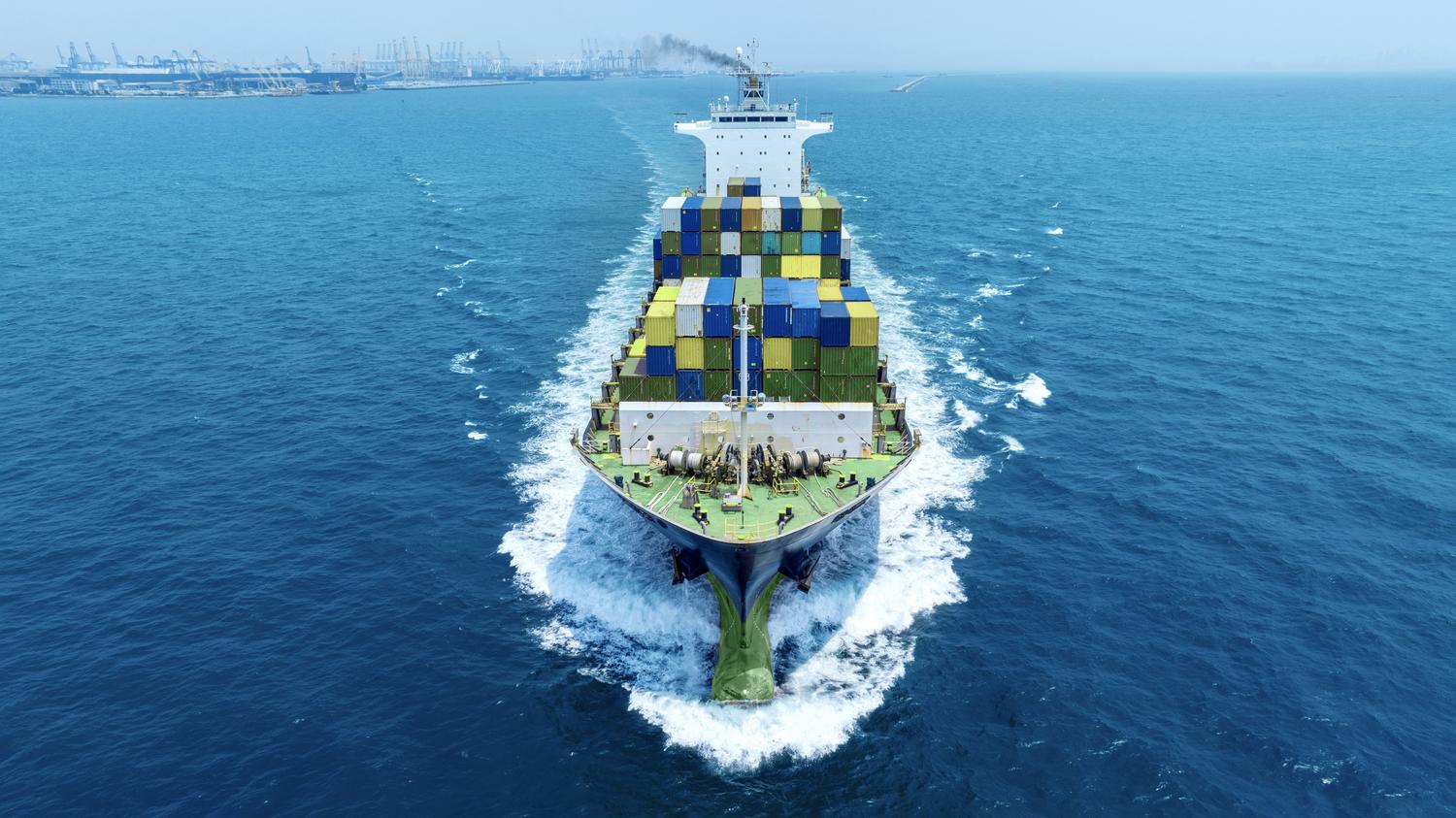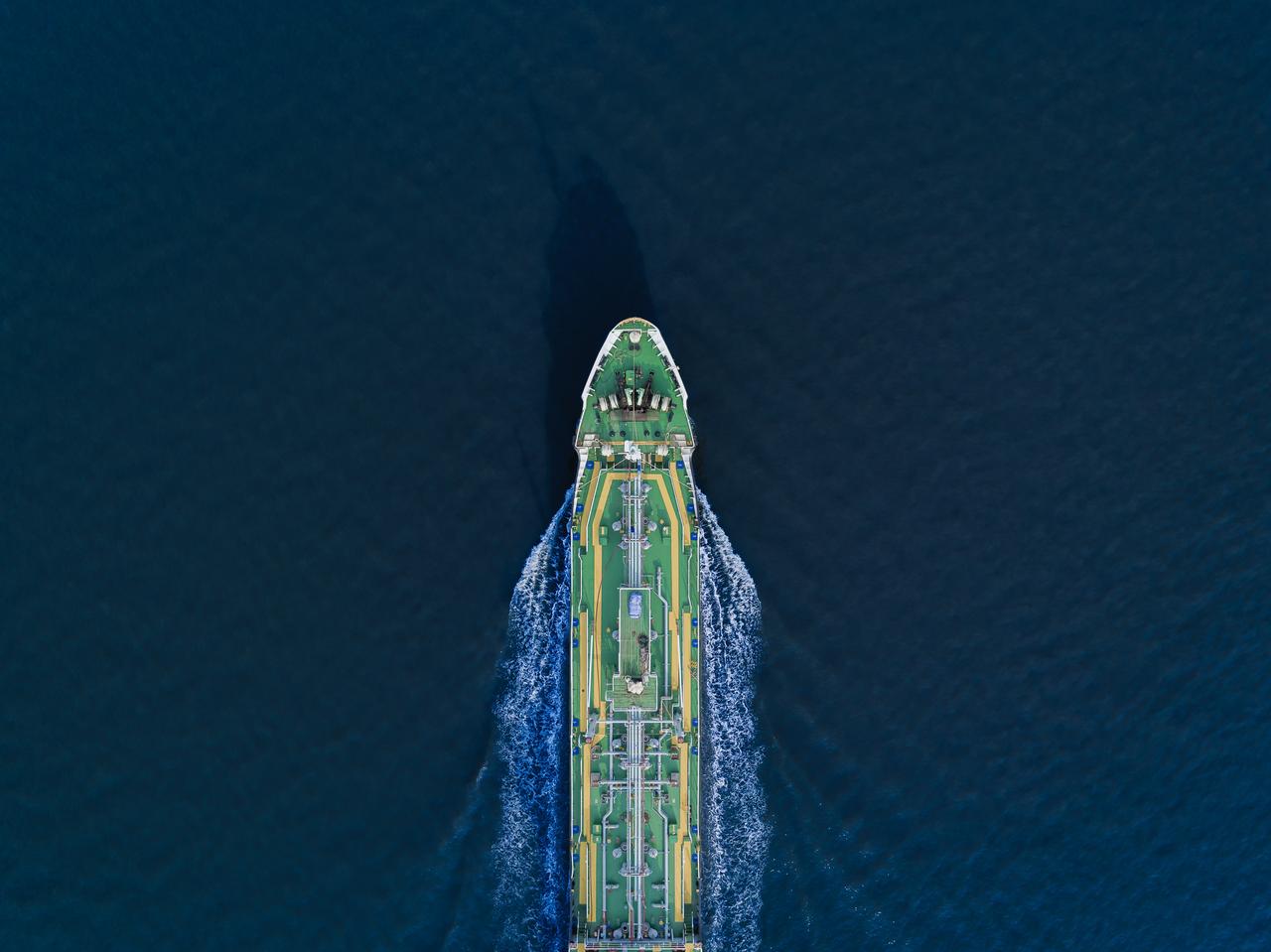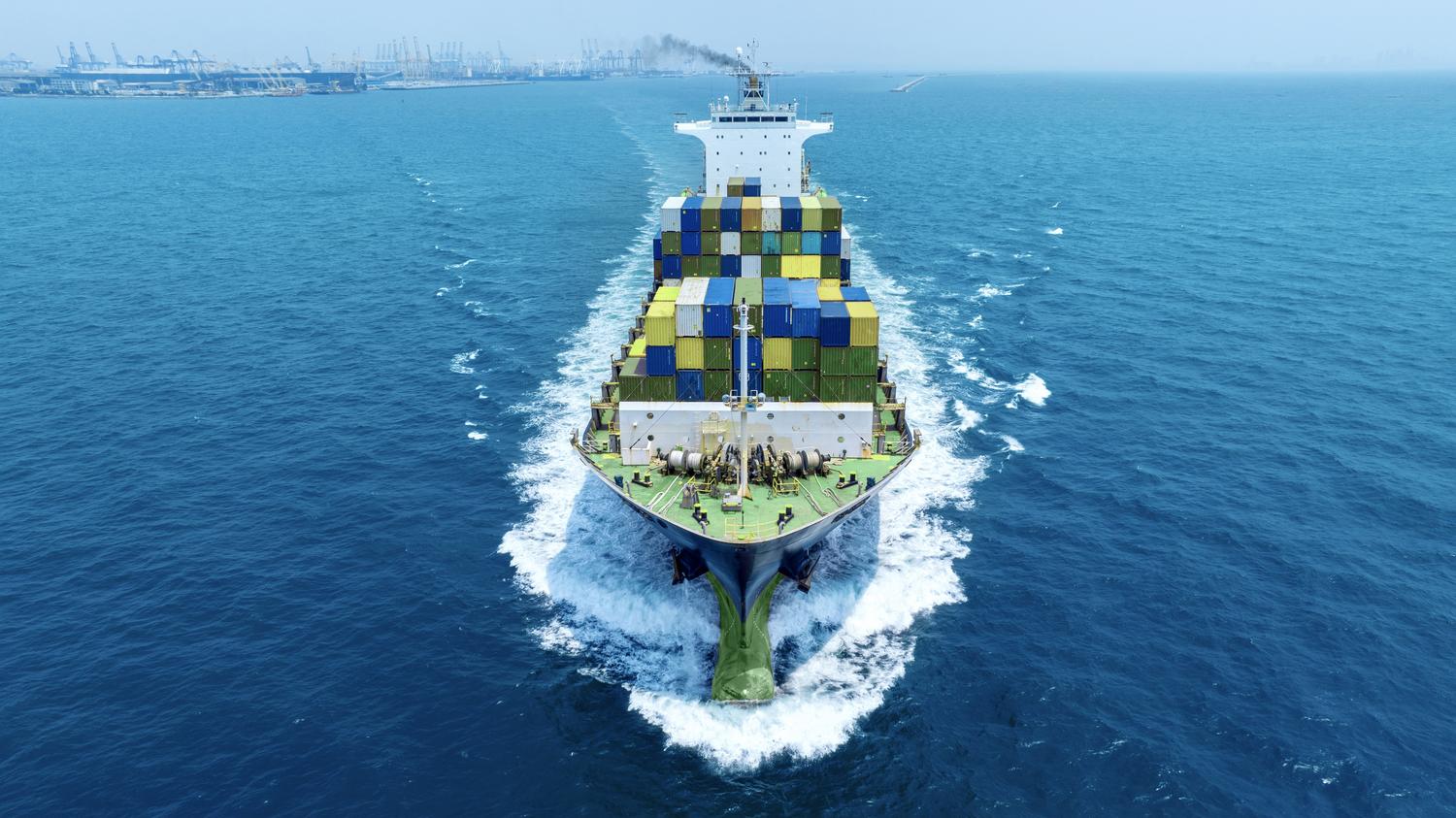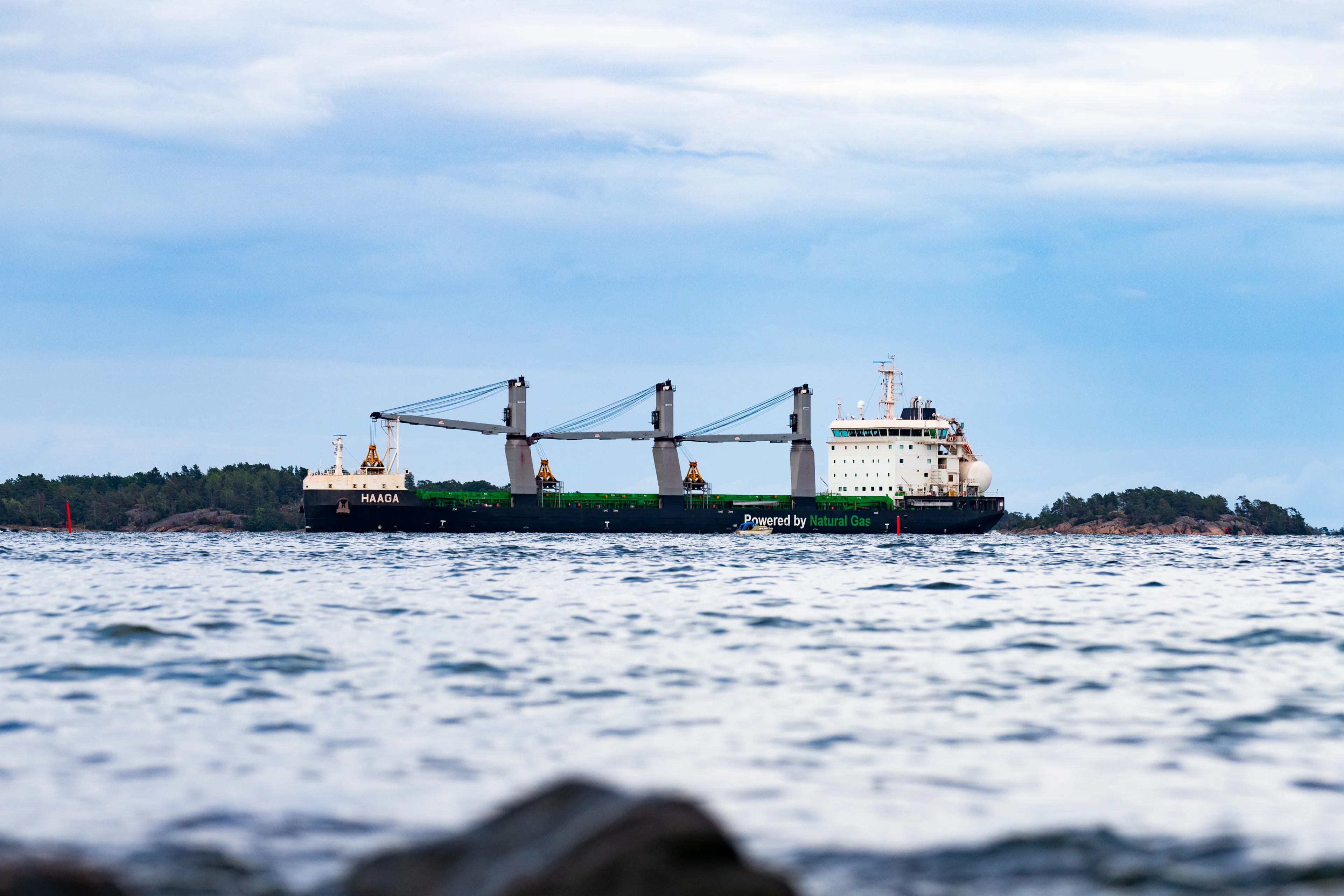
Marine
4 minute read
Neste's co-processed marine fuel enables lower-emission freight for ESL Shipping
After more than 70 years in the business, ESL Shipping has risen to become one of the leading shipping companies in the Baltic region, with growing operations in the Arctic. The close to 50-strong vessel fleet has a combined shipping capacity of 451,000 tons, and serves customers spanning a vast range of industries.
ESL Shipping
Sustainability leader for dry bulk shipping in the Baltic Sea
Targets Net Zero emissions by 2050
Utilizes Neste Marine™ 0.1 Co-processed to target 80%* reduction in GHG emissions
"Shipping is not easy to decarbonize, which is why we are happy to use Neste’s co-processed marine fuel to achieve immediate emissions reductions."
For products to be truly carbon-neutral, reducing emissions of raw materials and end products is key. For ESL Shipping, this represents an opportunity to reduce the carbon footprint of shipping, and lead by example.
Sustainability is, by necessity, at the heart of everything ESL Shipping does. All shipping companies now operate in an ever-changing environment, with climate change having a direct and very tangible impact on operations. This can be felt through extreme weather or changing shipping lanes, for example.
With the recent launch of a new generation of hybrid electric vessels – which can immediately reduce emissions by up to 50% – ESL Shipping has demonstrated that sustainable shipping is already within reach.
In order to get to Net Zero, ESL Shipping is constantly looking for partners that can provide them with seamless, efficient, tangible solutions that can reduce carbon footprint while increasing the net-positive impact of shipping. ESL Shipping turned to its long-standing partnership with Neste, which offered a solution for a sustainable, scalable fuel source that could reduce vessel emissions by up to 80% over the lifecycle compared to fossil fuels – Neste Marine 0.1 Co-processed.
Considerations
Reduce CO2 emissions per ton-mile by 50% by 2030
Provide fossil-free services to shipping customers
Cut unnecessary energy waste throughout shipping processes
"Neste’s co-processed marine fuel has worked flawlessly, and without any need for modifications."
Solution
When did Neste Marine 0.1 Co-processed first appear on your radar?
We’ve had a long relationship with Neste, and we trust them to offer us solutions that are fit-for-purpose. In the shipping industry, one reason why the uptake of biofuels or renewable fuels has been difficult is because of their general lack of compatibility with existing machinery.
Neste clearly shares our understanding, which is why they offered us a sustainable ISO 82170 compliant fuel option that was compatible with all our vessels. As a kicker, their solution offers the same level of performance as fossil fuels.
How do you see Neste Marine 0.1 Co-processed playing a role in your energy mix?
It comes in especially handy in specific use cases. This is a genuine alternative to fossil fuels that is already compatible across our existing vessels. We have for example used Neste Marine 0.1 Co-processed with our LNG-powered vessel Viikki, and it has performed flawlessly. By doing this, we can effectively run these large and critical vessels with zero tank-to-wake emissions.
This will prove cost-effective and help to extend the lifespan of our fleet. It will also help us stay agile in the face of changing regulations. After all, the likes of the EU and the International Maritime Organization are already rolling out ambitious regulations to curb emissions in shipping, now and in the future. With a solution like the co-processed marine fuel, we can stay ahead of the curve.
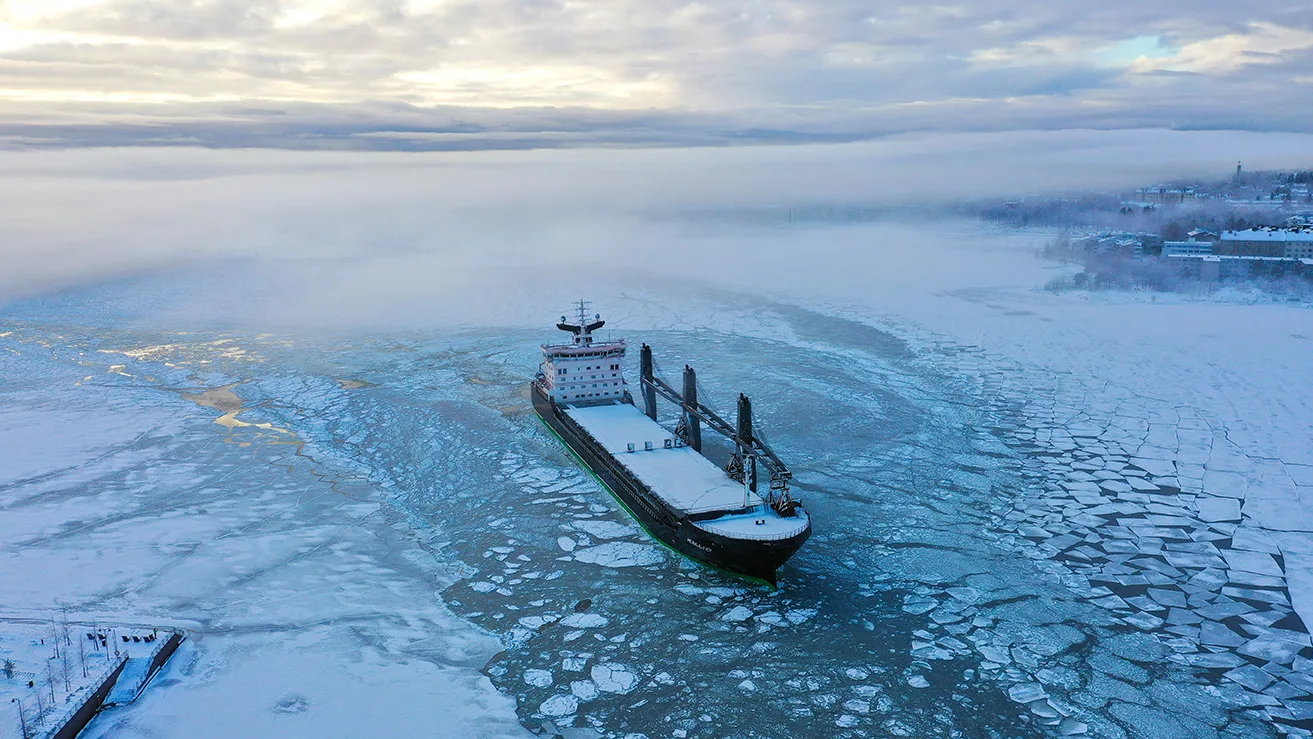
Image: ESL Shipping
Why is emissions reduction important to your business?
We know that business as usual is no longer an option for the shipping industry. It is strategically vital to reduce our carbon footprint, as climate change is already bringing extreme challenges to shipping everywhere.
That’s why we plan to reduce CO₂ emissions per ton-mile by 50% by 2030, with a goal of net zero emissions by 2050. To get there, how we consume energy must change. That’s why we have already begun to roll-out hybrid electric vessels. We’ve also established our Virtual Arrival concept, which has already reduced emissions on average by 25% on applied voyages.
This sense of importance also extends to the customers that we ship goods to. Across the board, customers want to see how the transport emissions of their products can be reduced. That’s why we offer a portal where all our customers can see the exact emissions of their cargoes. Customers want fossil-free products as soon as possible, and we have a responsibility to provide them.
Would you recommend Neste’s fuel solutions to others in the shipping industry?
Emission-free operations are a priority for every competitive, ambitious player in the shipping industry. While energy-efficient vessels are an essential piece of the puzzle, this can only ever be a part of the solution. For truly sustainable operations, the fuel you use is key.
Neste Marine 0.1 Co-processed has offered us an easy way to reduce our carbon footprint quickly and with our existing vessels. This benefits both us and our customers. We look forward to delivering our customers’ cargo with as little carbon as possible, until we get down to net zero.
* The method used to calculate life cycle emissions and emission reduction is guided by the EU Renewable Energy Directive II (EU)2018/2001.
Credits:
Neste,
